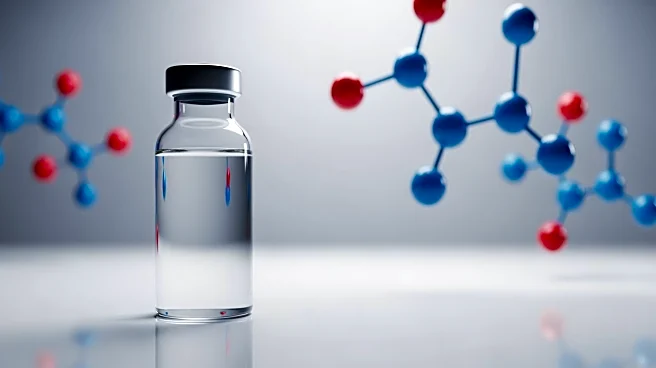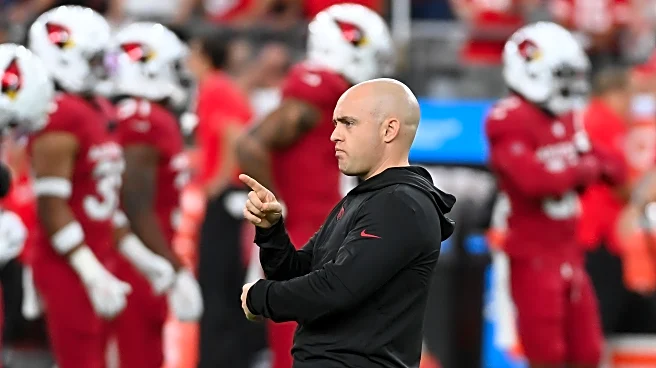What is the story about?
What's Happening?
The Trump administration is contemplating significant restrictions on medicines imported from China, which could disrupt the American pharmaceutical industry. A draft executive order, if enacted, would halt the flow of Chinese-developed experimental treatments to the U.S. Major pharmaceutical companies have been acquiring rights to drugs created in China for various conditions, including cancer and heart disease. The potential order has sparked intense lobbying from groups with substantial financial interests. Prominent investors and corporate executives, including Peter Thiel and Sergey Brin, are advocating for a crackdown on what they perceive as a threat from China's biotechnology sector.
Why It's Important?
The proposed restrictions could have far-reaching implications for the U.S. pharmaceutical industry, affecting the availability of generic drugs and advanced treatments. This move could disrupt supply chains and increase costs for American consumers and healthcare providers. The decision is pivotal for U.S. biotech companies that rely on Chinese innovations to expand their product offerings. The lobbying efforts highlight the high stakes involved, with billions of dollars at risk for investors and companies. The outcome could redefine U.S.-China relations in the biotech sector and influence global pharmaceutical markets.
What's Next?
If the executive order is enacted, it could lead to significant changes in how U.S. pharmaceutical companies source and develop new treatments. The industry may need to seek alternative sources for drug development, potentially increasing research costs and timelines. Political leaders and industry stakeholders are likely to continue lobbying to influence the final decision. The situation may also prompt discussions on national security and economic independence in the biotech sector.














